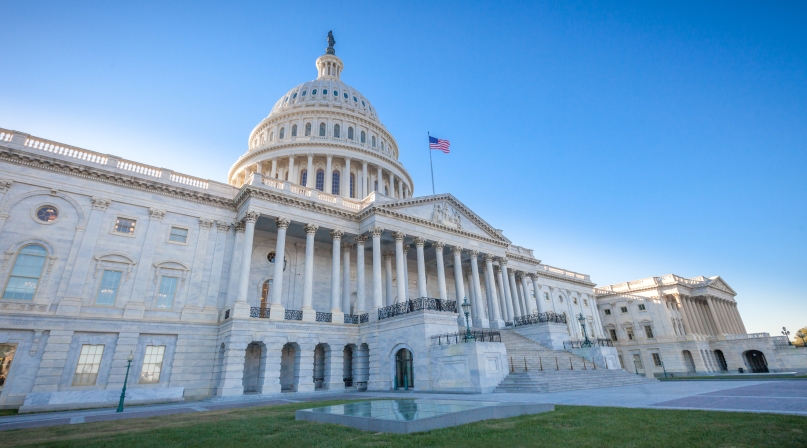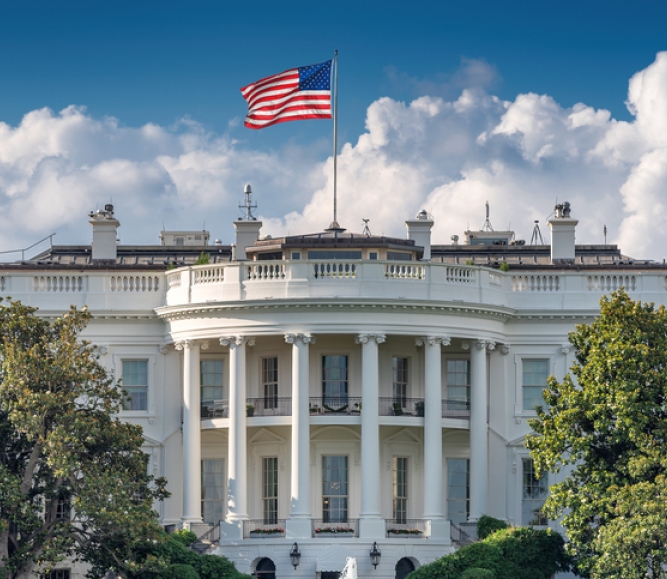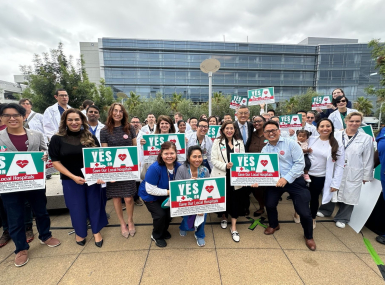Congress clears bipartisan gun reform legislation
Author

Brett Mattson

Blaire Bryant
Upcoming Events
Related News

Key Takeaways
On June 25, Congress passed and the President signed into law the Bipartisan Safer Communities Act (P.L. 117-159), the first major gun reform legislation in decades. The bill makes critical changes to the process for acquiring a firearm and includes funding opportunities to assist in identifying and addressing mental health, and makes key investments in strengthening school safety.
Counties support many of the priorities laid out within the law and appreciate the bipartisan efforts to see the legislation over the finish line.
Below is a detailed overview of the major provisions of the bill of note for counties.
Mental Health Provisions
The legislation includes provisions that enhances the delivery of behavioral health services for counties, including:
- Expansion of the Certified Community Behavioral Health Clinic program: The legislation expands the existing Medicaid certified community behavioral health clinic program (CCBHC) to nationwide, allowing for up to 10 new states to opt into this demonstration program every two years.
- New guidance on tele-mental health services for children: The legislation requires the Centers for Medicare and Medicaid services to provide guidance to states on how they can increase access to health care, including mental health services via telehealth to Medicaid and CHIP beneficiaries. The legislation also requires the agency to issue guidance to state Medicaid programs on how states can receive funding for health services that are provided in school settings. This provision authorizes $50 million in planning grants to states to help them implement the new guidance.
Investments in School Safety and School-Based Mental Health
The legislation includes significant investments in programs across federal agencies to strengthen school safety and school-based mental health, including:
- More than $2 billion for school climate and school-based mental health services: The legislation would direct more than $2 billion in additional funding to be available through March 1, 2023, for ED programs that support school climate and student mental health. Of these funds, roughly half would support mental health resources, drug and violence prevention, crisis intervention services and after school programming, with the remaining half aiming to develop and hire more school-based mental health professionals. To further support behavioral health services in schools, the bill would require the U.S. Department of Health and Human Services Center for Medicaid and Medicare Services (CMS) to issue guidance and provide technical assistance to states related to implementing, enhancing, and expanding school-based health programs under Medicaid.
- $300 million in school security upgrades: The legislation would also increase funding for the STOP School Violence Act grants by $300 million, more than doubling current funding for the program. Administered by the Department Of Justice, these grants allow schools to invest in school security hardware, school resource officers, training for educators on school safety practices and violence prevention efforts.
- A permanent school safety clearinghouse: The bill would also codify SchoolSafety.gov, a clearinghouse within the Department of Homeland Security that provides "best practices" for school safety.
Firearm Provisions
The legislation includes a number of reforms to the current process for the purchase and acquisition of a firearm, including:
- Accessing juvenile records: The legislation provides increased ability for the National Instant Criminal Background Check System to access juvenile records, mental health records and contact local law enforcement about an individual’s history. Additionally, it will deny an individual from receiving a firearm if they have been adjudicated as a mental defective or has been committed to any mental institution after age 16.
- Stopping illegal trafficking of firearms: The legislation implements fines and prison time for individuals who purchase a weapon for someone else – often referred to as straw purchasing – and imposes stronger penalties if that weapon is found to have been used in an act of terrorism, drug trafficking or to commit another felony. Additionally, the legislation strengthens fines and prison time for individuals who traffic weapons.
- Closes the “boyfriend loophole”: The legislation closes the “boyfriend loophole” by denying access to firearms to individuals who have or have recently had a serious relationship based on the length of the relationship and frequency of interaction. This provision would not apply retroactively.
- Incentivizes the implementation of “red flag laws”: The legislation would provide $750 million over five years through the Byrne-JAG program for states to develop and implement extreme risk protection order programs or as they are more commonly referred, red flag laws.
Supplemental Appropriations
The bill makes significant fiscal investments in county behavioral and mental health service programs through supplemental funding in the following county programs:
- $150 million for the implementation of the National Suicide Prevention Lifeline (988): The legislation provides one time funding to support the implementation of the 988 suicide lifeline, which provides 24/7 free, and confidential support to people in suicidal crisis or emotional distress.
- $250 million for the Community Mental Health Services Block Grant (MHBG): The legislation provides funding to states and territories for comprehensive community mental health services through the Substance Abuse and Mental Health Services Administration over 4 years. Counties may receive suballocated funds through their state.
- $240 million for Project AWARE: The legislation appropriates $240 million over 4 years to increase awareness of mental health issues among school-aged youth, provide training for school personnel, and other adults who interact with school-aged youth to detect and respond to mental health issues and connect youth to care. Approximately $28 million of these funds are set aside for grants to support trauma care in school settings.
- $40 million for the National Child Traumatic Stress Network: The legislation provides funding over 4 years through SAMHSA to improve treatment services for children, adolescents and families who have experienced traumatic events.
- $60 million for HRSA’s Primary Care Training and Enhancement Program: The legislation directs $60 million over five years for training in mental health for primary care providers who treat children and youth.
- $500 million for the School Based Mental Health Services (SBMHS) Grant Program: The legislation provides additional funding available through March 1, 2023 for competitive grants to states to increase the number of and reduce the turnover of qualified mental health service providers who administer mental health services to students in school districts with demonstrated need.
- $500 million for Mental Health Services Professional Demonstration Grants: The legislation would provide additional funding through March 1, 2023 for competitive grants that support innovative partnerships between institutions of higher education and school districts to prepare school-based mental health service providers for employment in high-need schools.
- $200 million for states to upgrade criminal and mental health records: The legislation provides $200 million over five years for states to upgrade criminal and mental health records needed to complete the updated background check process.
- $250 million for community violence programs: The legislation provides $250 million over five years through the U.S. Department of Justice for community violence intervention and prevention initiatives.
Advocacy
White House announces more than $300 million in new mental health funding from the Bipartisan Safer Communities Act
On October 3, the Biden administration announced more than $300 million in new mental health funding made available through the recently passed Bipartisan Safer Communities Act.

Related News

CMS issues new guidance on Medicaid Community Engagement Requirements
On December 8, the Centers for Medicare & Medicaid Services (CMS) released a Medicaid and CHIP Services Informational Bulletin (CIB) directing states on how to implement the Medicaid community engagement requirements enacted under Section 71119 of the One Big Beautiful Bill Act legislation (Public Law 119-21), or H.R. 1.

California county sales tax measure backfills federal healthcare cuts
Santa Clara County, Calif. will raise an estimated $330 million each year from a sales tax to backfill lose Medicaid funding.

